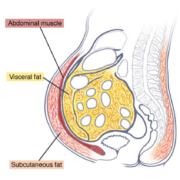Genetics or Lifestyle?
My dad died of a heart attack when he was 41. That fact has always been hanging over my head, especially when I had a heart blockage 16 years ago; the coronary artery was opened, I had a stent put in and have had no issues since. Was it my genes or was it lifestyle? Genotype or genes versus phenotype or lifestyle. I’ve always said genes, but not any more.
Researchers recently published an analysis of over 800 million individuals after examining births, deaths, and relationships between the individuals: in other words, who married whom, how many children they had, how long they lived. They found that a role for a genetic component of longevity was supported in family trees of people who were related. But here’s the interesting thing: they also found that there was a longevity relationship between non-blood relatives as well. In other words, the subjects’ in-laws shared similar traits for longevity.
What does that mean? Perhaps people unconsciously select mates with comparable traits. Because we don’t do that intentionally by genetics, it means that similar environments have a similar impact.
The actual role of genetics was estimated to be well below 10%. In other words, phenotype or lifestyle is more meaningful than your genes for how long you live. This was a very complicated mathematical analysis, so we should proceed with caution, but there’s little question that lifestyle has more to do with longevity than your genes.
Good genes give you a good start, but what you do after that matters most. What should you do? Eat better. Eat less. Move more.
Your body. Your choice. What are you prepared to do today?
Dr. Chet
Reference: https://doi.org/10.1534/genetics.118.301613









